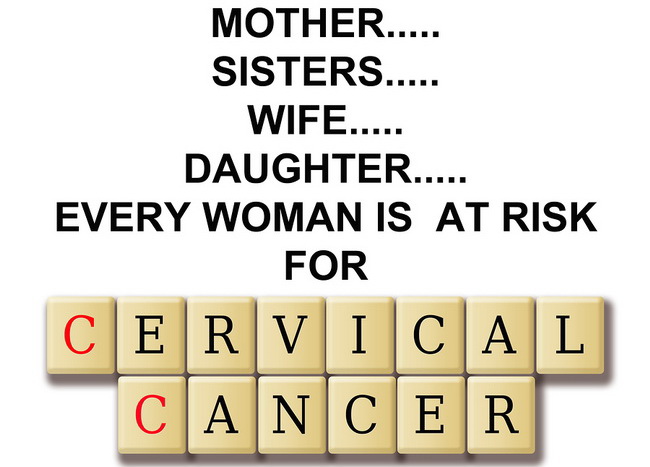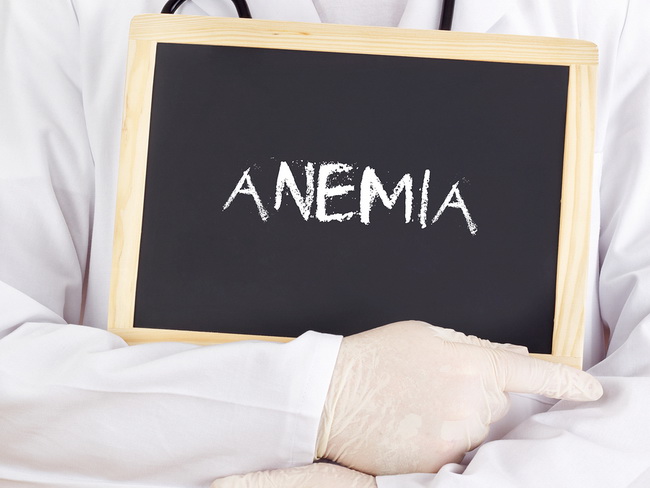- Make It Yourself Lavender Heart-Shaped Bath Bombs!
- 20 Things You Never Knew About “Down There”
- 12 Best Foods For Those Suffering From Arthritis Pain
- 12 Personal Hygiene Mistakes Almost Everyone Makes (Mom Never Told You About #4!)
- 15 Medicinal Plants And Herbs From The Cherokee People
- 12 Mind-Blowing Benefits Of Drinking Coconut Water During Pregnancy
- 12 Outstanding Winter Foods That Won’t Fatten You Up Like A Christmas Turkey
12 Warning Signs of Cervical Cancer Every Woman Should Know

Photo credit: bigstock.com
About 50 years ago, cervical cancer was one of the top death risks many women faced. Since the development of pap smears and the recognition of some common warning signs, the number of women who die from this silent killer has dropped significantly.
This doesn’t mean, however, that women need to be any less vigilant. We know much more about the risks and causes of cervical cancer than ever before, and when caught early, most women have complete recoveries. Still, the key phrase here is “catching it early.”
Knowing the 12 most common warning signs and knowing what you can do to lower your risk can give you a great advantage of this disease. Keep reading to learn what changes you can make to lower your risk and become familiar with the most common warning signs so that you can live a long and healthy life.
First, let’s take a look at the risk factors that can increase your chances of developing cervical cancer. Although you can’t change some of them, there are lifestyle choices you can make that will help immensely.
Cervical Cancer Risk Factors
- Weight – Women who are overweight or that eat a diet low in fruits and vegetables are known to have a much higher risk of developing cervical cancer. Although the exact reasons for this are not fully understood, scientists believe that poor eating habits rob the body of cancer fighting nutrients.
- HIV – Women with HIV have compromised immune systems, which leaves them more vulnerable to cervical cancer.
- Birth Control Pills – The hormones that are used in oral contraceptives give certain types of cancer a type of “breeding ground” that allows them to flourish. The longer you take oral contraceptives, the greater your risk. Studies show that women who take birth control pills double their risk every 5 years.
- HPV – There are hundreds of different types of the Human Papilloma Virus, but regardless of the type, scientists believe that this virus is a type of stepping stone for the development of certain types of cancer, including cervical cancer.
- Multiple Pregnancies – Scientists don’t understand why, but women who have had 3 or more full term pregnancies have a higher risk of developing this cancer.
- Genetics – Women with a family history of cervical cancer have a 3 times greater risk than women who don’t have this disease in their history.
- Chlamydia – Women who have had a chlamydia infection also have a greater risk of developing this type of cancer.
- Smoking – If you smoke, you double your chances of getting cervical cancer. Tobacco and the additives in cigarettes damage the DNA of the cervix. Smoking also affects the immune system.
- First Pregnancy at a Young Age – Women how had their first full term pregnancy before they were 17 are twice as likely to develop cervical cancer later in life than women who waited until they were at least 25 to get pregnant.
When cervical cancer is caught early, it is easily treatable, but you can lower your risks by doing the following:
- Get Regular Pap Tests – Women between the ages of 20-30 should be tested every 3 years. Women between the ages of 30 and 65 should be tested every 3 to 5 years. Women over 65 don’t need to be tested if they do not have high risk factors (such as genetics) and they have had 3 tests in a row with normal results.
- Watch Your Weight – Obese women have a higher risk, so keeping your weight down will help to lower your risk.
- Eat a Healthy Diet – Studies show that women who consume a mostly plant based diet have lower rates of all types of cancer, including cervical cancer.
- Don’t Smoke – If you smoke, stop. If you don’t smoke, don’t start.
- Prevent Sexually Transmitted Diseases – Many people carry the HPV virus and have no symptoms. Limit your sexual partners, known their history, and when in doubt, use condoms.
Continue to Page 2

Photo credit: bigstock.com
Keep reading for the top 12 most common symptoms of cervical cancer.
1. Pelvic Pain
Many women become accustomed to various types of pelvic pain, including cramps and aches during menstruation, which is why many women ignore this particular symptom. However, you should be aware when pain in the pelvis occurs during other times, if it happens more frequently or becomes more severe than what is normal for you. Don’t let a doctor tell you that “it’s normal” or that “it’s all in your head” without a full examination. If you feel this pain is abnormal, it probably is. If your doctor refuses to examine you or listen to your complaints of pain, find another doctor.
2. Uncomfortable Sex
If you begin to have pain during intercourse (the technical term is dyspareunia) this is sometimes a sign of cervical cancer. There are other causes for painful sex, but you should have your doctor rule out cervical cancer before they look at other possible causes.
3. Back Pain
This is another symptom many women ignore because it often accompanies the onset of the menstrual cycle and although back pain can happen for a wide variety of reasons (carrying around a toddler, for example) if you experience back pain that you can’t explain, or it accompanies other symptoms on this list, or if you are in a high risk group, then see your doctor.
4. Weight Loss and Fatigue
These symptoms can be due to many other reasons, but again, in combination with other symptoms, or if your doctor has looked at other reasons and can’t find a reason for unexplained weight loss and extreme fatigue, be certain that you are checked for cervical cancer.
Continue to Page 3

Photo credit: bigstock.com
5. Anemia
Anemia is a significant decline in the number of red blood cells in the blood’s plasma. The red blood cells are replaced by white blood cells from the immune system. This deprives the body of oxygen and is generally a sign of some type of disease in the body. Cervical cancer is known to cause anemia. If you have a lack of appetite, feelings of tiredness, and other symptoms, see your doctor. If your doctor states that you are anemic (a simple blood test will reveal this) ask your doctor to check for cervical cancer, as being anemic is often a warning sign that the cancer is progressing to a more advanced stage.
6. Leg Pain
When the cervix begins to swell, it can obstruct the flow of blood to the legs, which causes the legs to swell and have feelings of pain, soreness, or feel tender to any sense of touch. This symptom is common in the early stages of cervical cancer.
YOU MIGHT BE INTERESTED IN: Top 10 Natural Remedies for PMS Relief
7. Unusual Bleeding
Of all the symptoms we are going to list, this is perhaps the most common. If you have bleeding in-between your menstrual cycles or if you experience bleeding after having sex, this could be a sign of cervical cancer. Women who are postmenopausal and no longer have periods should really pay attention to this sign and see their physician right away.
8. Pain When Urinating
If you feel pain or a stinging sensation, or tightness when urinating, this could be a sign of cervical cancer. Women who have had this type of cancer describe it in different words, but generally speaking, they all describe some type of abnormal discomfort when urinating. This usually means that the cancer has spread to nearby tissue and this requires immediate attention.
Continue to Page 4

Photo credit: bigstock.com
9. Irregular or Unusual Menstrual Cycles
Women should have some level of consistency when it comes to their menstrual cycle. If the length of your period, frequency, or intensity of your period changes, it might be a sign of the earliest stages of cervical cancer. If these inconsistencies continue for several months, contact your doctor.
10. Irregular Urination
If you aren’t experiencing pain but the appearance of your urine or your urination habits change (you suddenly have difficult urinating or you begin experiencing incontinence), you should consult a doctor. Although some changes are due to other causes (urinary tract infections can cause discolored, bloody urine) they are also another sign of cervical cancer.
11. Unusual Vaginal Discharge
Most women experience some small amount of vaginal discharge, but if your discharge changes dramatically; smells foul or looks bloody or green, suddenly increases quite a bit, this could also be one of the earliest signs of cervical cancer and should be checked out by your doctor.
SEE ALSO: Top 8 Things that Increase Your Risk of Breast Cancer
12. No Symptoms
This is the worst symptoms of all because for many women, in the early stages, they experience no symptoms whatsoever. If you are at a greater risk for this type of cancer, you would be wise to get regular checkups and take steps towards reducing your risk as much as possible. Even if you have no symptoms, getting a pap smear every few years according to your age is a good decision that might save your life.
If you are an adult female and you notice any type of changes in your reproductive cycle or urination habits, or if you feel unusual pain, see your doctor to be sure that you can rule out this silent killer.
References:
































